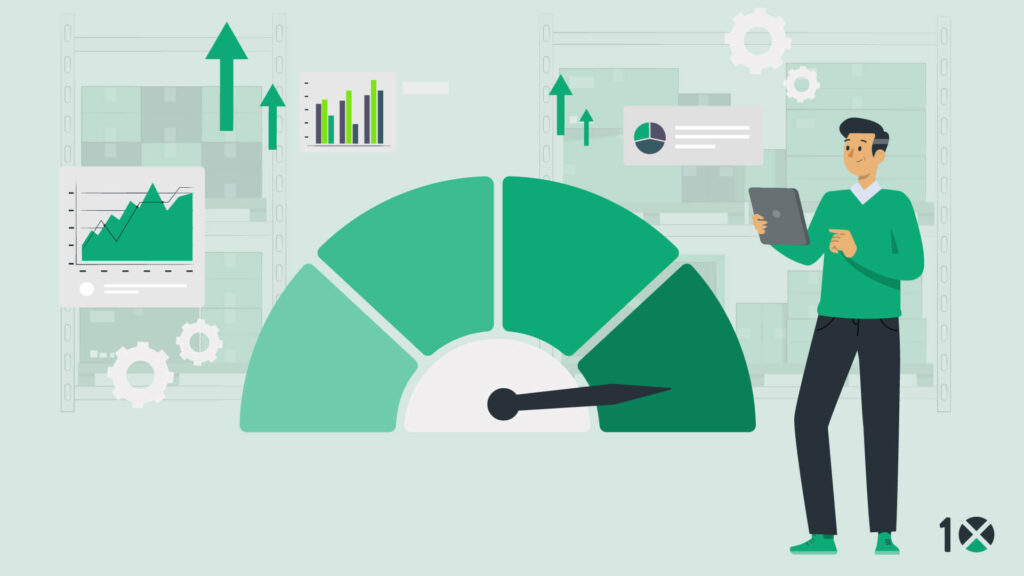Summary
- Integrating Big Data with ERP systems offers SMEs enhanced decision-making through real-time analytics, enabling proactive strategy adaptation and efficient inventory management.
- Combining big data and ERP automates data collection and analysis, reduces errors, and improves operational efficiency through predictive analytics and resource optimization.
- Leveraging Big Data with ERP systems provides SMEs with deep market insights, fostering growth, customer satisfaction, and competitive differentiation in the distribution sector.
In today’s fast-paced distribution sector, small to midsize enterprises (SMEs) face the daunting challenge of staying competitive and agile. The intersection of Enterprise Resource Planning (ERP) and Big Data is emerging as a pivotal solution, transforming how these businesses operate and thrive. This blog post delves into how integrating Big Data with ERP systems can revolutionize operations for SME distributors, offering insights into improved decision-making, efficiency, and growth.

Understanding ERP and Big Data
ERP Systems Explained: ERP, or Enterprise Resource Planning, is comprehensive software. It combines different parts of a business, like inventory management, order processing, finance, and customer relations, into one unified system. This is especially useful for small and medium-sized enterprises (SMEs) as it gives them a clear and complete view of their business activities. This clear view helps improve both the efficiency of their operations and the quality of their decision-making.
What is Big Data? Big Data refers to the enormous amount of information created by everyday business activities, social media interactions, sensor data, etc. This data is vast in its amount (volume), fast in its generation (velocity), and diverse (variety). When analyzed properly, Big Data can be a rich source of insights.
The Intersection of ERP and Big Data: When you integrate ERP with Big Data, you’re essentially merging this vast array of information with the streamlined processes of an ERP system. This integration is a powerful tool for SMEs. It helps them discover previously hidden insights, forecast upcoming trends, and base their decisions on solid data. This combination of ERP and Big Data is a potent way for businesses to stay ahead in a competitive environment.

Enhancing Decision-Making with Real-Time Data
Integrating Big Data with ERP systems offers SMEs an unparalleled advantage in decision-making through real-time data analytics. This fusion empowers businesses to rapidly assimilate and interpret large data sets, translating them into actionable insights. For instance, detailed analysis of sales patterns can unearth emerging market trends, enabling companies to adapt their strategies to capitalize on these shifts proactively. This proactive approach is vital in today’s dynamic market landscape. Additionally, real-time inventory analytics are crucial in maintaining optimal stock levels and preventing overstocking and stockouts. This efficient inventory management streamlines operations and optimizes capital allocation, fostering a more agile and responsive business environment.

Streamlining Operations and Improving Efficiency
The amalgamation of Big Data and ERP systems revolutionizes operational processes by automating the collection and analysis of data. This automation significantly diminishes the prevalence of manual errors, thereby saving valuable time and resources. For SMEs, this translates into an enhanced focus on core business functions, driving productivity and efficiency. Furthermore, the incorporation of predictive analytics into ERP systems is a game-changer. It enables businesses to anticipate market demands more accurately, facilitating improved resource allocation and scheduling. This foresight enhances operational efficiency and positions SMEs to respond more effectively to market changes, ensuring they remain competitive and agile in a rapidly evolving industry.

Driving Growth and Competitive Advantage
For SMEs in the distribution sector, integrating Big Data with ERP systems is a strategic initiative that transcends mere operational efficiency—it’s a catalyst for growth and competitive differentiation. By leveraging this powerful combination, businesses gain deep insights into customer behaviors and market trends. This knowledge allows them to tailor their offerings more precisely, enhancing customer satisfaction and loyalty. Moreover, the insights gleaned from Big Data can spur the development of innovative services and business models, setting these SMEs apart in a competitive market. Such forward-thinking strategies foster growth and cement a strong competitive advantage, which is essential for long-term success in the dynamic distribution landscape.
Conclusion
The intersection of ERP and Big Data is more than a technological advancement; it’s a strategic imperative for SMEs in distribution. By embracing this integration, businesses can enhance decision-making, streamline operations, and drive growth. As the industry continues to evolve, the synergy between ERP and Big Data will undoubtedly play a critical role in shaping the future of SME distributors.
Discover how 10X ERP can transform your business with the power of Big Data integration. Contact us to learn more about our solutions tailored for SME distributors.
